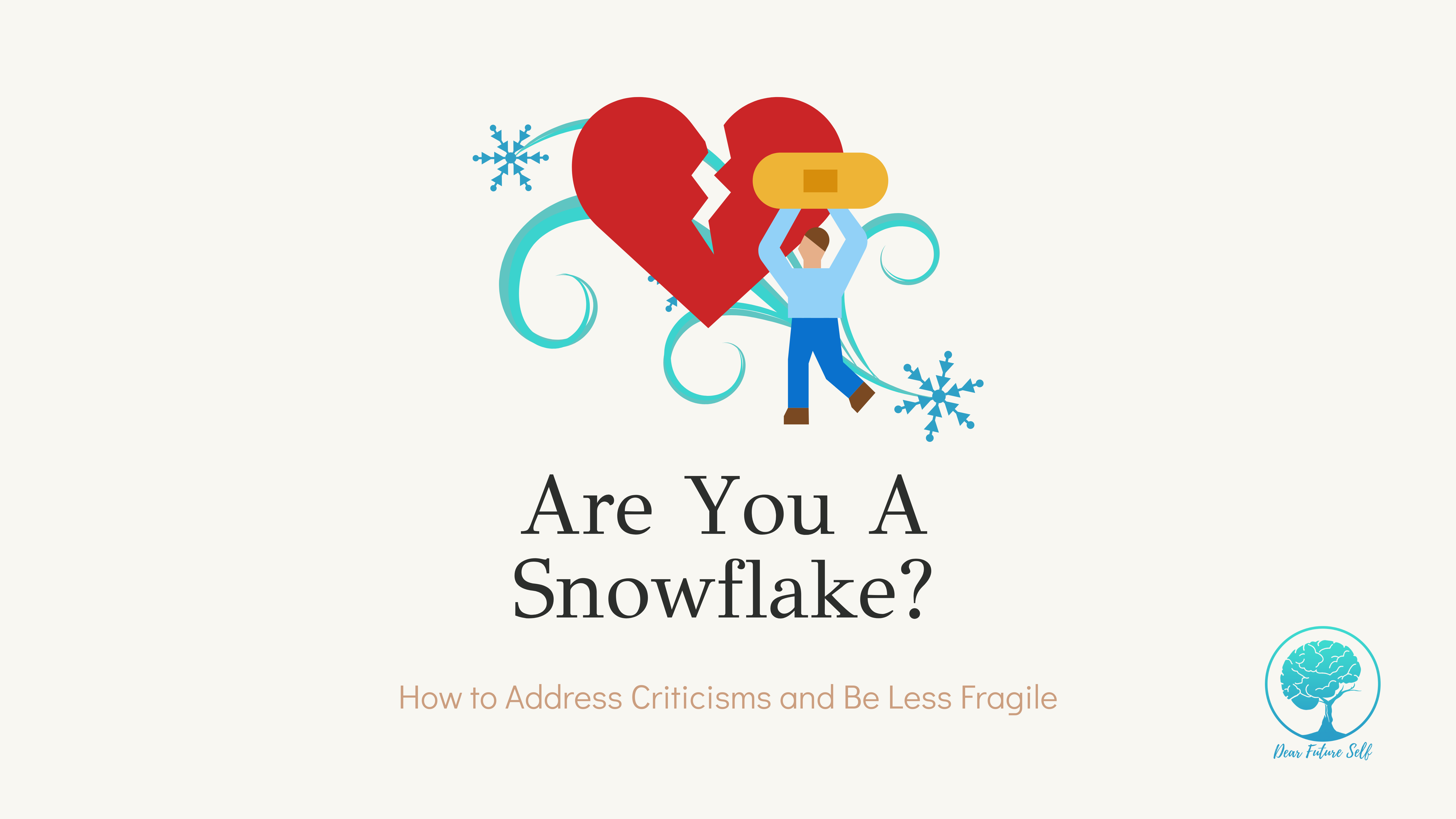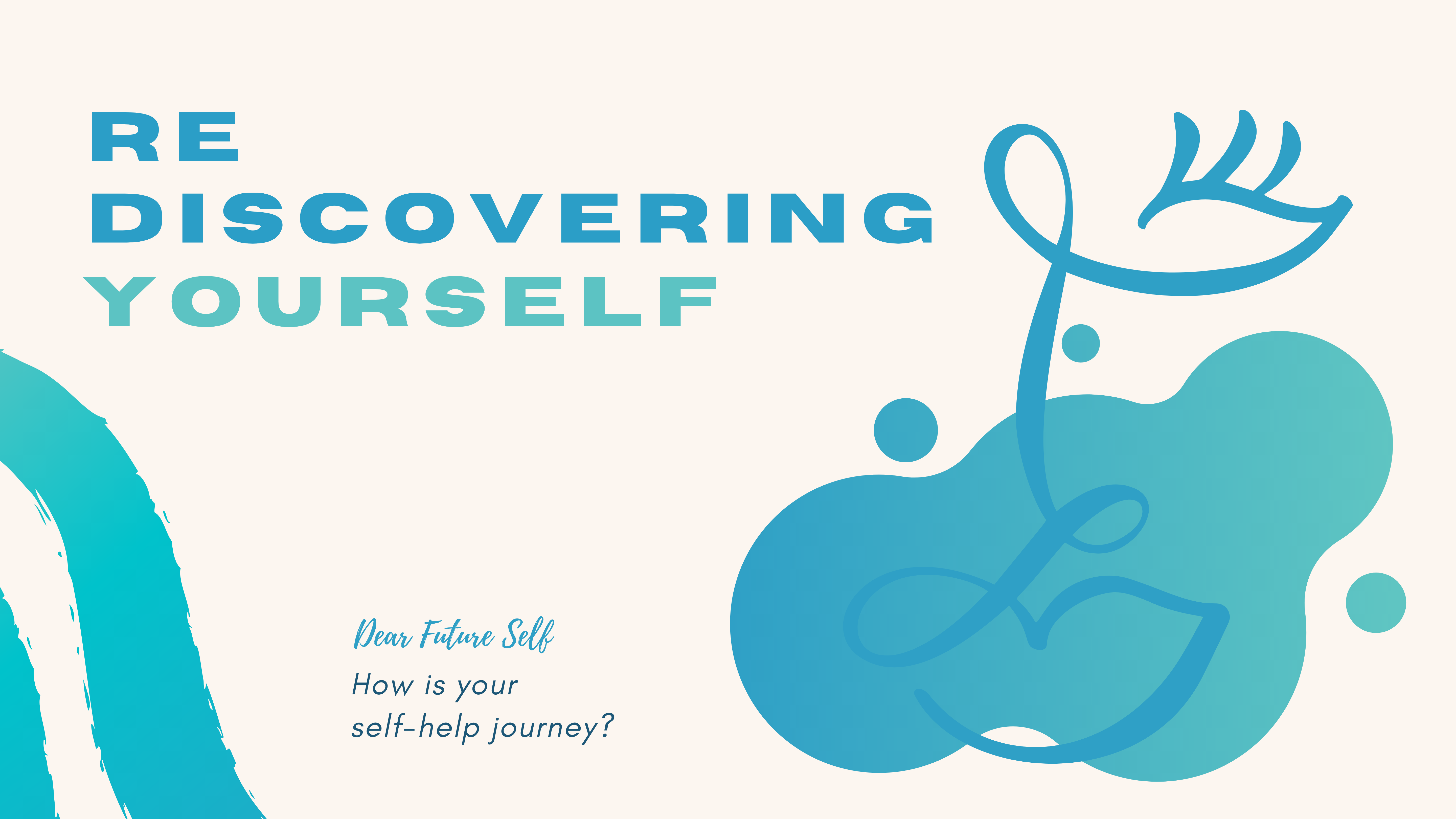
23 Aug Are You A Snowflake in Accepting Criticisms?
How to Address Criticisms and Be Less Fragile
Criticism is a hard pill to swallow, yet we should expect to face it in our everyday lives. Oftentimes, we may find criticism from our peers or supervisors discouraging or perhaps demoralizing. However, we must understand that receiving criticisms is essential for our personal growth (Harmon, 1991 & Ion et al., 2019)
I’m pretty sure that you have experienced receiving both positive and negative feedback from your superiors, mentors or colleagues. You may have received a lot of criticisms and may have been told to reorganize, restructure, review or rewrite your whole work. You might see this as too overwhelming. However, after giving it much time for you to read or process those comments, you will come to realize that these insights will be the key to improve your work.
Criticism may hurt in the short term, but it will ultimately benefit us! Now, here are some tips to help us accept and utilize criticism:
1. Realize that the comments are NOT about YOU! It’s about your WORK.
-
- Some people feel discouraged by the negative feedback they receive and result in dissatisfaction (Williams & Kane, 2008) demotivation (Irons, 2007) and affected self-esteem (Dweck, 1999 & 2001) . This is our human tendency to negatively interpret criticisms we receive about the self (Canli et al., 2004 & Vaish et al., 2008). Though it is normal to feel slightly hurt, note that the criticism is about your WORK. It is NOT about YOU. Hence, think of this as a springboard to unlock your true potential.
2. See your work from the perspective of the critique.
-
- We all have our own perspective on what counts as an amazing piece of work. Thus, while reading comments of the critique, try to imagine their thought process. Then, examine why they gave you a particular comment.
- You can reread the paragraph several times and note the ideas expressed to derive with more clarity. Switching perspectives may help you understand what to do next to improve your work.
3. COMMUNICATE with the critique.
-
- Effective communication is the key to a relationship (Tarring et al., 2019; Langer et al., 2018; Manne et al. 2006; Honavar. S., 2018). Thus, if you are confused about a certain comment or if you need more guidance, try to set up a meeting with the person who critiqued your work.
- Prior to the meeting, make sure to go through your work and the critique’s comments again. You can note down all of your questions and clarifications so that you may discuss this during your meeting. This will also ensure that you are able to address all of your concerns during the meeting.
4. Create a plan for improvement.
-
- After speaking to the critique, you should have an idea on how to enhance your work. With this, you can begin creating a plan for improvement. Although, everyone has their own way of editing their work.
- You can write down everything you need to do step by step.
- This strategy can make it easier for you to identify which parts of your work you need to revise. It can also make it easier for you to divide the task of editing your work, which can make it more manageable.
5. Ask for more comments and feedback.
-
- Although this may still be difficult for some, keep tip #1 in mind. Take advantage of this time that someone is willing to review and help you improve your work. Most importantly, remember that asking for more feedback will allow you to grow as a person (Harmon, 1991 & Ion et al., 2019).
Do you think your ![]() would benefit from constructive criticisms? or how much is considered as healthy amount of criticisms?
would benefit from constructive criticisms? or how much is considered as healthy amount of criticisms?
References:
Canli, T., Amin, Z., Haas, B., Omura, K., & Constable, R. T. (2004). A double dissociation between mood states and personality traits in the anterior cingulate. Behavioral Neuroscience, 118, 897–904. doi: http://dx.doi.org.dlsu.idm.oclc.org/10.1037/0735-7044.118.5.897
Dweck, C. S. (2000). Self-theories: Their role in motivation, personality, and development. Philadelphia, PA: Psychology Press.
Harmon, S. (1991). Receiving Criticism with Confidence. Medical Laboratory Observer. 23(4), 56+.
Honavar. S. (2018). Patient–physician relationship – Communication is the key. Indian Journal of Ophthalmology. 66, 11, doi:10.4103/ijo.IJO_1760_18
Ion, G., Sanchez, A. & Agud, I. (2019). Giving or receiving feedback: which is more beneficial to students’ learning? 44, 1, p124-138. doi: 10.1080/02602938.2018.1484881
Irons, A. (2007). Enhancing learning through formative assessment and feedback (Series: Key guides for effective teaching in higher education). London, England: Routledge.
Langer, S. L., Romano, J. M., Todd, M., Strauman, T. J., Keefe, F. J., Syrjala, K. L., Bricker, J. B., Ghosh, N., Burns, J. W., Bolger, N., Puleo, B. K., Gralow, J. R., Shankaran, V., Westbrook, K., Zafar, S. Y., & Porter, L. S. (2018). Links Between Communication and Relationship Satisfaction Among Patients With Cancer and Their Spouses: Results of a Fourteen-Day Smartphone-Based Ecological Momentary Assessment Study. Frontiers in Psychology.
Manne, S., Ostroff, J., Norton, T., Fox, K., Goldstein, L. & Grana, G. (2006). Cancer-related relationship communication in couples coping with early stage breast cancer. 15, 3, p234-247. doi: 10.1002/pon.941
Tarring, B., Gittell, J., Laursen, M., Rasmussen, B. & Sarensen, E. (2019). Communication and relationship dynamics in surgical teams in the operating room: an ethnographic study. BMC Health Serv Res 19, 528. https://doi.org/10.1186/s12913-019-4362-0
Vaish, A., Grossmann, T., & Woodward, A. (2008). Not all emotions are created equal: The negativity bias in social-emotional development. Psychological Bulletin, 134, 383–340. doi: http://dx.doi.org.dlsu.idm.oclc.org/10.1037/0033-2909.134.3.383
Williams, J., & Kane, D. (2008). Exploring the National Student Survey. York, UK: The Higher Education Academy.
Self-Help Corner
Seek Professional Help

Gift Certificates & Self-Care Package
Connect with Us









